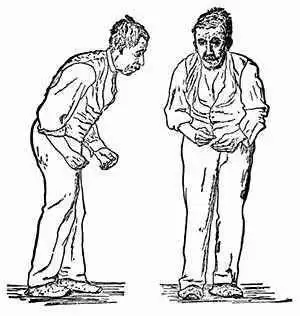Nerve Disease and Celiac Disease
Celiac.com 02/08/1996 - The article was based on a study published in the same weeks Lancet which was conducted by Dr. Marios Hadjivassiliou and colleagues at the Royal Hallamshire Hospital in Sheffield, England. Dr. Hadjivassiliou tested patients with various undiagnosed neurological symptoms and found that 57% of them tested positive to gluten sensitivity. Specifically, they tested positive for gliadin antibodies, which means they have gluten sensitivity and not necessarily celiac disease. Sixteen percent of the patients were found to have full blown celiac disease, which is far higher than the estimated .004% level found in the normal population. Five percent of the patients with previously diagnosed neurological disorders such as Parkinsons disease were found to have the gliadin antibodies present compared to 12% of a healthy control group.
Celiac.com Sponsor (A12):
According Dr. Hadjivassilious theory, many neurological ailments could be caused when the anti-gliadin antibodies mistakenly attack neural tissue and destroy it. The fact that some celiac patients with neural damage never fully heal helps to support Dr. Hadjivassilious theory, because neural tissue repairs itself very slowly, if at all. Further, Dr. Hadjivassiliou states in the article that celiac disease seems to be much more common than was previously thought (1 in 250 people). When one includes the people who test positive for the gliadin antibody (this means they have gluten-sensitivity and are not necessarily celiacs), the amount could be much higher than 1 in 250. Based on his study, Dr. Hadjivassiliou recommends that patients who exhibit any type of neural disorders be tested for gluten sensitivity and celiac disease.





.webp.bd46bd1009c45e98c3082487f52ff41b.webp)

Recommended Comments